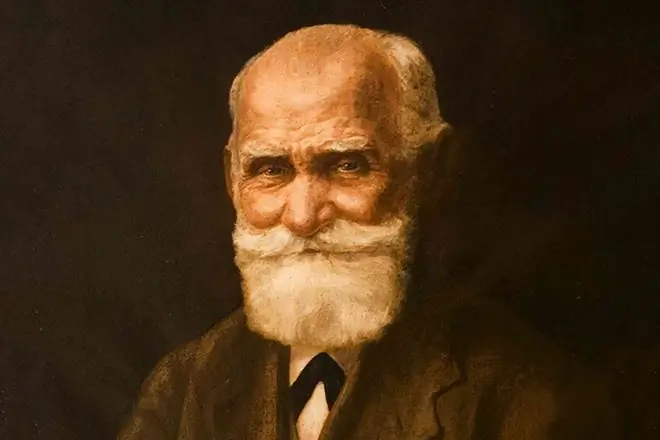- Author Antonio Harrison harrison@cultureoeuvre.com.
- Public 2023-12-16 07:44.
- Last modified 2025-01-22 21:44.
Ivan Petrovich Pavlov - full member of the Russian Academy of Sciences, scientist. He studied psychology and physiology. He created the doctrine of higher nervous activity and conditioned reflexes. He is the Nobel Prize Laureate in Physiology. Ivan Petrovich created the largest physiological school in Russia and conducted many experiments and experiments

Biography of Academician Pavlov
Ivan Petrovich Pavlov is an outstanding Russian scientist, psychologist, physiologist, creator of the theory of higher nervous activity. The future academician was born on September 26, 1849 in Ryazan into a family of priests. The scientist's mother, Varvara Ivanovna, devoted all her attention to her husband and children. She was not educated, but was able to create an atmosphere of comfort and warmth in the family, doing housework.
Ivan's father, Peter Dmitrievich, was a parish priest in a poor parish. For a long time, the family did not have much income, which affected the upbringing of ten children. However, the desire to work and the great zeal of Peter Dmitrievich made him the rector of the church in Ryazan. For Ivan, his father becomes an example of perseverance in achieving his goals and striving for perfection. Following in the footsteps of his father, Ivan Petrovich enters the initial course of the theological school, which he graduated from in 1864. Then he entered the Ryazan Theological Seminary. In the last year of study, Ivan gets the work of Academician Sechenov "Reflexes of the Brain". It was she who determined the future fate of the outstanding scientist.
Studying at the University of St. Petersburg
In 1870, Pavlov graduated from theological seminary, but did not want to connect his life with the Ryazan Church. He moved to St. Petersburg and entered the university at the Faculty of Law, but after a few days he was transferred to Physics and Mathematics. Here he chooses a natural branch. Physiology becomes his main hobby. Pavlov pays special attention to the physiology of animals, learns to conduct operations under the guidance of I. F.
Since 1873, Pavlov began research work in collaboration with one of the students of Professor Zion. His work is devoted to the study of the digestive and circulatory organs of frogs, then proceeds to the study of the pancreas. His research was awarded a gold medal. In 1875, Ivan received a diploma of higher education and went to work at the Botkin clinic. Work in the physiological laboratory of Botkin was the beginning of the scientific career of the future academician.
In 1883, Ivan Petrovich defended his doctoral dissertation on the topic of centrifugal cardiac nerves. Successful research activities Pavlov allowed him to work in the laboratories of Breslau and Leipzig. Then he becomes the head of the physiological laboratory at the Institute of Experimental Medicine.
Scientific activity of Academician Pavlov
Ivan Petrovich Pavlov is famous for many scientific discoveries. A distinctive feature of his activity is the discovery of the connection between psychological and physiological processes in the animal's body. In 1890, Pavlov conducts his famous experiment with sham feeding. The experiment, dubbed "Pavlov's dog," consisted of the study of animal reflexes. With the help of a dog, the scientist was able to prove the formation of conditioned reflexes. This discovery becomes the center of the study of the processes of nervous activity.
In 1903, Ivan Petrovich made a report on higher nervous activity at the International Medical Congress in Madrid. In 1904, Pavlov became the Nobel Peace Prize laureate in physiology, for the study of digestion processes.
Personal life and family
Ivan Petrovich Pavlov got married in the mid-70s of the 19th century. Serafima Karchevskaya, a teacher by training, became his wife. The couple had six children. The first years of life together were overshadowed by the death of two children, lack of livelihood. The young people did not have their own homes. All this drove Ivan to despair. But the help and support of his beloved wife allowed the future academician to get out of depression.
The couple's life improved after the recognition of Ivan Petrovich as one of the outstanding scientists of Russia. The academician spent the last years of his life in St. Petersburg, continuing to engage in scientific activities. His health was crippled by a cold, which led to pneumonia. This disease was the cause of the death of the outstanding scientist. Ivan Petrovich Pavlov died on February 27, 1936.






